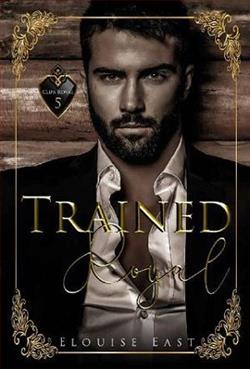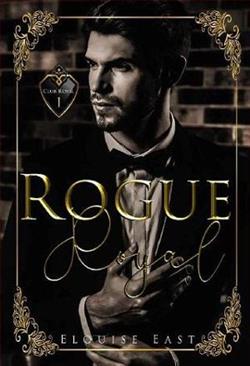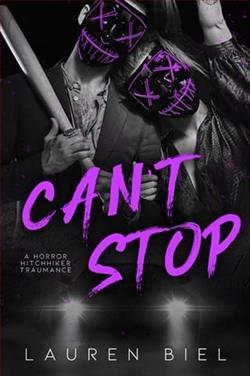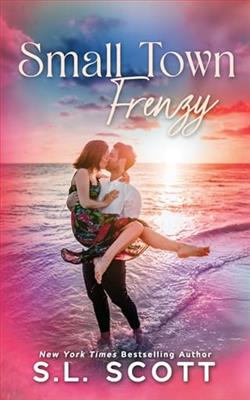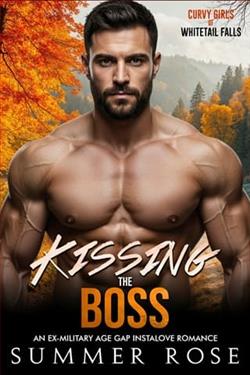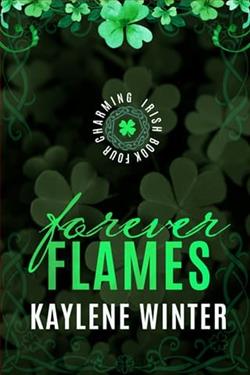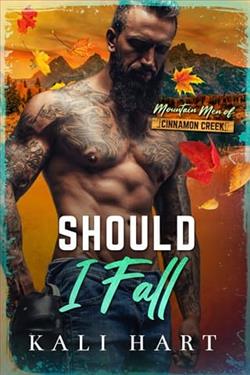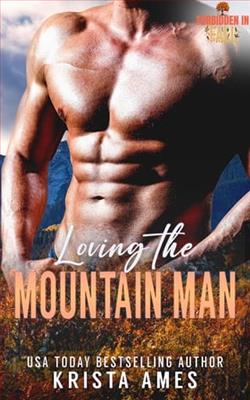Page 1 of A Little Twist
PROLOGUE
ALEX
SIXTEEN YEARS AGO
“Patricia, I’m so sorry for your loss.” Reverend Shepherd clasps my mother’s hand, smiling warmly into her eyes before moving to my dad. “Andrew, Gladys and I are praying for you all.”
“Thank you, Jim.” My dad shakes the older man’s hand, his arm around my mom’s narrow shoulder as she clutches a cloth handkerchief to her nose.
I’m standing between my older brother Aiden and my younger brother Adam in a navy suit that makes my neck itch, in front of a stinky flower arrangement.
Stargazers, my mom called them when she lined us up in row. “What a lovely arrangement of stargazers,” she’d observed, her nose red from crying.
Stinkgazersis more like it. They’re making the pressure in my head worse. Looking over my shoulder, I notice a narrow door with a greenExitsign above it, and I wonder if there’s any way I can get the hell out of here.
Aiden’s jaw is fixed, and at twenty, he only has one year left at Annapolis, the US Naval Academy in Maryland. With his dark suit, short hair, and perfect posture, he already has the look of a future Marine, stoic and unflinching. I guess that’ll be me in three more years, when I graduate from high school and follow in his footsteps.
Adam, by contrast, is dressed in a short-sleeved shirt and khakis. His brown hair is a little too long, and it curls around his ears in waves that are bleached caramel from spending all summer surfing.
He’s doing his best to fight his tears, roughly wiping away any strays that make it onto his cheeks. But he’s only thirteen. He can still get away with crying.
Not me. At fifteen, I’m a young man now. At least, that’s what Dad said when he’d helped me with my necktie. The implication being,men don’t cry. The only problem is when I see Pop lying in that casket, stone cold and unmoving, it pits my stomach and tightens my throat.
He’s too thin. His skin is the wrong color, and he never wore suits. He said we had that in common. We’d rather be in our waders fishing in the brackish marsh.
Even when he was so sick with cancer he couldn’t get out of bed, I’d sit beside him, and he’d close his eyes. He’d ask me if I could see the redfish swimming in the reeds. I’d hold his hand and say I could. He’d remind me how important it was to be patient, to wait for the fish to come to me, don’t rush them.Good things come to those who wait.
Now he’s gone.
I like to imagine he’s found the best fishing hole in heaven, and he’s hanging out with all of Jesus’s friends, who were also fishermen—as he liked to remind me when Mam-mam would give him a hard time for fishing on Sunday instead of going to God’s house. He’s probably up there swapping stories and comparing lures.
Pop wouldn’t want me to be here trying not to cry. He’d want me to be out by the water, at our favorite spot, taking in the sunshine and smiling over our memories. He’d say you have to have the clouds, the overcast days, to catch the biggest fish. You don’t catch anything on sunny days.
Reverend Shepherd has gone to the back of the room, and Aiden has joined my dad and our uncles around the casket. They’re going to carry it out of the church. Adam has his arm around Mom’s waist, and the two of them have moved closer to the aisle.
I take a step back, in the direction of that door, as the organ music starts and the men reverently lift my grandfather’s casket off the stand. They take another step forward, and I take another step back. Again and again, we move until the entire group is at the top of the aisle, and my hand is on the cold metal barrier leading out of the small sanctuary.
The minute I step out into the muggy afternoon, I start to run. First Presbyterian Church of Eureka, South Carolina, population 3,002, is on the side of town closest to the old neighborhoods, where my family lives. It was designed to be “walkable,” but my mom says it’s too hot and humid to walk to church in heels.
I run the short distance to the house, and when I get inside, I toss my slick leather loafers in my bedroom, along with my stiff blazer and starched white shirt and tie. Slacks go next, and I snatch a pair of swim trunks off a pile of clean clothes in the corner I was supposed to put away.
In less than ten minutes, I’m riding my bike through the palmettos, out to the closest body of water. Sticking to the dirt paths, my tires thump hollowly over small, wooden footbridges, splash in shallow creeks, and crunch over wet gravel.
When I finally make it to the start of the little lagoon that leads out to the ocean, I abandon my bike and my Vans and take off on bare feet.
In the shade of the Walter pines, it’s cooler. The air is still thick with briny moisture, but the pungent odor of lilies is finally out of my nose, replaced with the scent of pine straw and the ocean.
I follow the familiar path as my mind fills with memories of Pop. I can see his calloused fingers attaching the fly to his line and sharing his old stories and wisdom.
“The only place you findsuccesscoming beforeworkis in the dictionary,” he once told me.
He’d worked hard all his life as a contractor, but his true joys were his family, fishing, and the smoky bourbon he brewed in our family’s distillery.
He’d just started teaching me how to make it. Looks like I’ll have to figure out the rest on my own. A hot tear lands on my cheek, and I didn’t realize I was crying. I only felt the knot between my shoulders, the ache at the base of my throat, the pain in my chest from longing for days I’ll never have again.
The sun shines brightly past the edge of the trees, but I stop short of the water. I stay in the shadows, leaning my head against my forearm as more tears fall. I’m not ugly-crying. I’m just letting the emotion drain from my eyes, my own private memorial to the old man who was my best friend.
Cicadas screech louder. The water ripples past, and I inhale a shaky breath. I’m finding calm when I hear a voice that stills my thoughts. It’s sweet and clear as a bell, and like a soothing balm, it quiets my sorrow.








